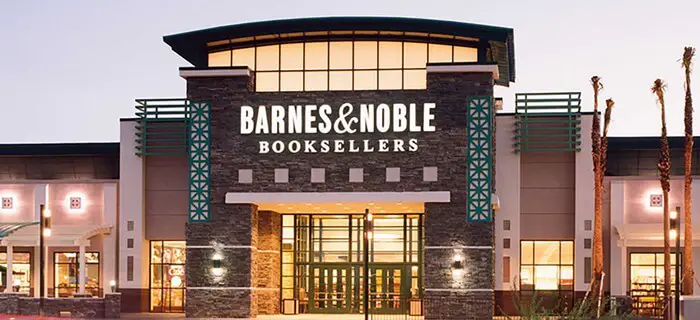Netflix Mission and Vision Statement Analysis

Netflix’s mission statement is “We promise our customers stellar service, our suppliers a valuable partner, our investors the prospects of sustained profitable growth, and our employees the allure of huge impact.” The statement resounds what the company is best known for – providing outstanding and unparalleled video entertainment services. It also shows how the company balances the satisfaction of its customers with the financial needs of its other stakeholders. An analysis of this mission statement uncovers several elements as shown:
- Improving lives. The commitment towards having an impact on societies over and above entertaining them is a factor that Netflix holds with high regard. The company links its operations to programs that ensure it satisfies its corporate social responsibilities by contributing to the overall improvement of people, environment, and economies. For instance, Netflix has been recognized for stimulating a sustainable model adopted by other companies across the globe with worthwhile impacts on communities and the environment.
- Exceeding expectations. It is true Netflix does not take its customers for granted. The stability and reliability that characterize its platform, together with the accompanying services proves beyond doubt that Netflix is a distinguished company. What’s more is that, in comparison to the subscription charges, the services it offers its customers are definitely a ‘bumper-like harvest’ for the clients. And, there is no compromise on quality neither.
- Delivering excitement and entertainment. Netflix acknowledges the ever-changing dynamics of entertainment in the contemporary era, especially with a shift away from linear TV. To fill this gap, the company brings its customers and investors a dynamic system that meets all their entertainment needs. For instance, Netflix brings a variety of entertainment options including internet entertainment apps and other online systems. Through these channels, the company feeds its customers with limitless content to keep them excited and enjoying every moment.
Introduction
Netflix is a company that has taken entertainment to another level with its interactive, up-to-date, and user-friendly platform. The diversity characterizing its services has made it the sought-after video provider not only in the U.S but also beyond the borders of its mother nation. In fact, looking at the quality and customer satisfaction, good is an understatement for what Netflix has achieved – its work is simply a phenomenon.
For over 20 years, Netflix has engraved its name as a top brand with incontestable quality, thanks to its mission and vision statements that emphasize its undivided attention to give the best wherever it operates. The vision statement of a company donates the picture of where the management wants the company to be in over a specific period of time in terms of success. Based on this, Netflix’s vision statement targets to be the model for the rest of on-demand video service providers. It is an ambition that is supported by its mission statement.
A company’s corporate mission statement highlights the specific tactical methods the firm exploits to advance its business position towards the set vision. In this case, Netflix’s mission statement emphasizes the outcomes the company can treat all its stakeholders, including its customers to. Netflix is also a company that considers its core values as imperative components to the overall growth of its business model. Ideally, they are the fundamental believes that help a company to stay within the path that it considers right in the achievement of its goals. With its values such as integrity, judgment, innovation, selflessness, and communication, Netflix continues to maintain its top reputation in line with what its mission and vision statements envision.
Vision Statement
Netflix’s vision statement is “Becoming the best global entertainment distribution service.” The vision statement is all about what the company wants to achieve. It stresses the desire to set a quality bar in the provision of on-demand video services. Specifically, this mission statement is a reflection of the leadership position Netflix aspires to attain and secure in the sectors. Based on this statement, the following characteristics emerge:
- Becoming the best. The approaches adopted by Netflix in its operations confirms that the company is not looking to settle being a conventional entity. In fact, it has already set itself a growth pace higher above the normal. To stay abreast of this scale, Netflix remains vibrant adopting the latest user-friendly features that give its customers the best experiences with the content they love. These are not limited to entertainment, as it also ensures investors are comprehensively covered through its investor tailored and transparent corporate governance approaches. In this way, Netflix has elevated itself as a company for the rest to emulate.
- Global presence. Through its integrated and customer-oriented approaches, Netflix has positioned itself as a global establishment as a way of fulfilling this component in its vision statement. The major aspect that draws attention to this feat is the strategic incorporation of inclusion and diversity in its operations. The understanding of the varied member base the company serves is a strength Netflix exploits in ensuring that the content it produces accommodates all the cultural backgrounds innovatively.
Core Values
Netflix’s core values comprise “judgment, communication, curiosity, courage, passion, selflessness, innovation, inclusion, integrity, and impact.” These values are integral to the smooth running of Netflix’s operations as they ensure all players remain focused on the major goals of the company. They can be explicated as follows:
- Inclusion
- Innovation
- Passion
- Curiosity
- Judgment
- Communication
- Courage
- Selflessness
- Integrity
- Impact
In its processes, Netflix is critical in creating a working environment that not only leads to the production of the most sought-after content but also one that has attractive returns to the investors and the company. It stimulates this through values such as inclusivity, innovation, passion for the content, curiosity to do take constructive risks, and informed judgment. It also considers communication and the nerve to do the impossible as must-have skills for taking the company to the top. Together with the desire from every player to make a difference while doing the right things, Netflix believes that the company can have the impact it aims for in the sector.
Netflix Mission Statement History
Netflix’s mission statement has evolved over time to reflect the company’s growth, changing priorities, and expanding scope. While the core essence of providing stellar service to customers has remained consistent, the mission statement has undergone several iterations to address the needs of various stakeholders. Let’s explore the mission statement history of Netflix, organized from the most recent to the oldest statements.
- Current Mission Statement (2021-present)
“We promise our customers stellar service, our suppliers a valuable partner, our investors the prospects of sustained profitable growth, and our employees the allure of huge impact.“
This mission statement reflects Netflix’s commitment to delivering exceptional service to its customers, establishing mutually beneficial partnerships with suppliers, generating sustained profitability for investors, and offering employees the opportunity to make a significant impact.
- 2016-2021
“Becoming the best global entertainment distribution service, licensing entertainment content around the world, creating markets that are accessible to filmmakers, and helping content creators around the globe to find a global audience.“
During this period, Netflix expanded its focus beyond being a streaming platform and positioned itself as a global entertainment distribution service. The mission statement emphasized their dedication to licensing entertainment content worldwide, creating accessible markets for filmmakers, and assisting content creators in reaching a global audience.
- 2010-2016
“To revolutionize the way people enjoy movies and TV shows.“
Netflix’s mission statement during this period reflected its aim to transform the traditional entertainment industry by introducing a new way of consuming movies and TV shows through streaming. The emphasis was on disrupting existing norms and providing users with a convenient, on-demand viewing experience.
- 1997-2010
“To be the world’s best Internet movie service, providing subscribers with unlimited access to a vast collection of movies.“
In its early years, Netflix focused primarily on being the leading internet-based movie service. The mission statement highlighted the company’s dedication to offering subscribers unlimited access to a diverse collection of movies, leveraging the power of the internet to redefine movie rentals.
It’s important to note that while these mission statements highlight the evolving priorities of Netflix, they may not encompass the entirety of the company’s strategic goals and initiatives. Mission statements serve as guiding principles and are subject to refinement as businesses adapt to new challenges and opportunities.
References
- Affelt, A. (2011). Best Practices for Aligning the Mission and Marketing the Services of the Corporate Library. Best Practices for Corporate Libraries, 153-66.
- Ciejka, D. (2018). Worth Watching?: Assessing the Financial and Operational Health of Netflix.
- Ellis, K. (2015). Netflix closed captions offer an accessible model for the streaming video industry, but what about audio description?. Communication, Politics & Culture, 47(3), 3.
- Goffee, R., & Jones, G. (2015). Why should anyone work here?. What It Takes to Create an Authentic Organization.
- Grimes, M., Williams, T. A., & Zhao, E. Y. (2018). Anchors aweigh: The sources, variety, and challenges of mission drift. Academy of Management Review, (ja).
- Hawkins, D., & Fryling, T. (2017). Redefining transformation. People+ Strategy, 40(2), 46-51.
- Hoffman, M. B. (2007). The myth of factual innocence. Chi.-Kent L. Rev., 82, 663.
- Jenner, M. (2018). Netflix and the Re-invention of Television. Springer.
- Karnani, A. (2008). Essence of strategy: Controversial choices. In Learning and performance matter (pp. 101-116).
- Kato, N., Fadlullah, Z. M., Mao, B., Tang, F., Akashi, O., Inoue, T., & Mizutani, K. (2016). The deep learning vision for heterogeneous network traffic control: Proposal, challenges, and future perspective. IEEE wireless communications, 24(3), 146-153.
- Kosiarz, M. The specificity of online entertainment services. Case study: Netflix.
- Lobato, R. (2019). Netflix Nations: The Geography of Digital Distribution. NYU Press.
- Netflix – Overview.
- Onyusheva, I., & Seenalasataporn, T. (2018). Strategic analysis of global e-commerce and diversification technology: the case of Amazon. Com Inc. The EUrASEANs: Journal on global socio-economic dynamics, (1 (8)), 48-63.
- Perryman, K. (2014). Netflix.
- Radošinská, J. (2017). New trends in production and distribution of episodic television drama: brand marvel-Netflix in the post-television era. Communication Today, 8(1), 4-29.



Many companies have value statements, but often these written values are vague and ignored. The real values of a firm are shown by who gets rewarded or let go. Below are our real values, the specific behaviors and skills we care about most. The more these values sound like you, and describe people you want to work with, the more likely you will thrive at Netflix.
Netflix is the best I can’t wait for Stranger Thing season 4.
Chernobyl 2019 is also great .
Can you work at Netflix without having a formal college degree, but still just as ready to learn and passionate as everyone else?